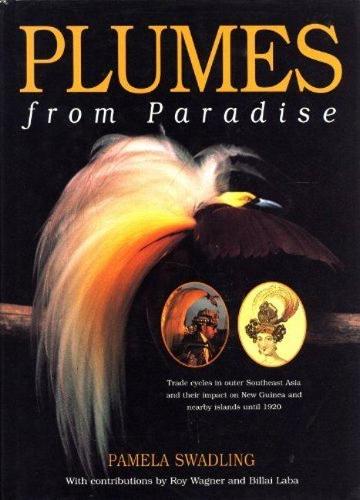
Plumes from Paradise: Trade Cycles in Outer Southeast Asia and their Impact on New Guinea and Nearby Islands Until 1920
(Paperback)
Publishing Details
Plumes from Paradise: Trade Cycles in Outer Southeast Asia and their Impact on New Guinea and Nearby Islands Until 1920
By (Author) Pamela Swadling
Sydney University Press
Sydney University Press
1st November 2018
Australia
Classifications
Professional and Scholarly
Non Fiction
598.1470995
Physical Properties
Paperback
352
Width 210mm, Height 297mm
681g
Description
The natural resources of New Guinea and nearby islands have attracted outsiders for at least 5000 years: spices, aromatic woods and barks, resins, plumes, sea slugs, shells and pearls all brought traders from distant markets. Among the most sought-after was the bird of paradise. Their magnificent plumes bedecked the hats of fashion-conscious women in Europe and America, provided regalia for the Kings of Nepal, and decorated the headdresses of Janissaries of the Ottoman Empire.
Author Bio
Pamela Swadling is visiting research fellow at the Australian National University College of Asia and the Pacific. She carried out archaeological fieldwork in the Solomon Islands before coming to Papua New Guinea in late 1972. Her study of the former plume trade on the Sepik coast and subsequently along the Ok Tedi led to the writing of this book.
Billai Laba is from Waidoro village in the Daru district of Western Province. He graduated from the University of Papua New Guinea in 1978 and currently works as an environmental planner in the Department of Environment and Conservation.
Roy Wagner is professor of anthropology at the University of Virginia, USA. He has done anthropological field research among the Daribi people of Karimui and the Usen Barok of central New Ireland, and has also collected texts and origin-accounts among Polopa speakers at Lake Tebera and on the lower Erave River.
